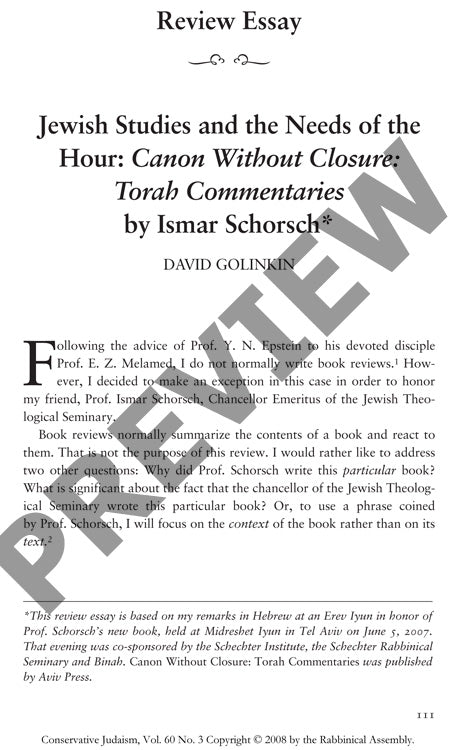Jewish Studies and the Needs of the Hour
Couldn't load pickup availability
Abstract This review essay examines Ismar Schorsch's *Canon Without Closure: Torah Commentaries* by analyzing the contextual significance of its authorship rather than its textual content. The study identifies three fundamental shortcomings of Wissenschaft des Judentums (the Science of Judaism): its treatment of Judaism as a dead religion, its disconnection from contemporary life, and its minimal influence on practitioners' lived experience. Through historical analysis of the Breslau Rabbinical Seminary and the Jewish Theological Seminary (JTS), the author demonstrates how these institutions, despite their scholarly excellence, failed to bridge Jewish studies with practical religious needs. The research methodology employs chronological examination of Schorsch's writings and speeches from 1987 to 2006 to trace his innovative approach as JTS Chancellor. The analysis reveals three key innovations in Schorsch's leadership: repositioning Jewish academia to serve the broader Jewish community, integrating Jewish studies with contemporary concerns, and developing a methodology that combines critical peshat (contextual meaning) with modern midrash (interpretive application). Two exemplary Torah commentaries from Genesis are analyzed to illustrate Schorsch's seamless integration of critical scholarship with spiritual meaning-making. The study concludes that Schorsch's work represents a paradigmatic shift in Jewish scholarly methodology, successfully addressing the historic disconnect between academic Jewish studies and lived religious experience while maintaining scholarly rigor.

More Information
-
Physical Description
-
Publication Information
Published 2008
ISBN
-
Publication Credits
David Golinkin

